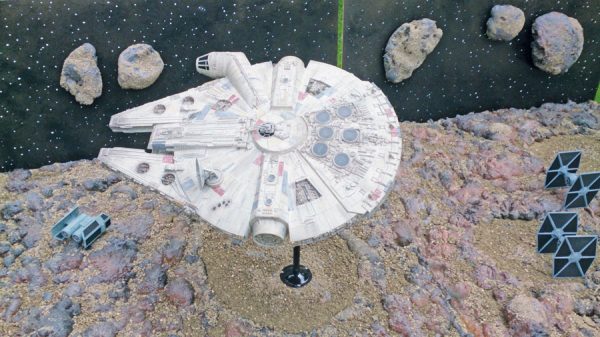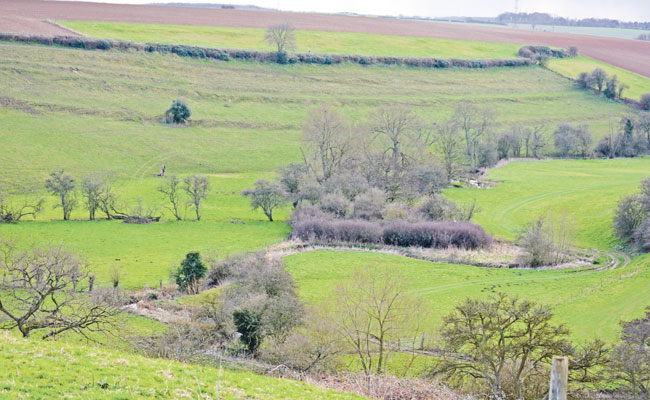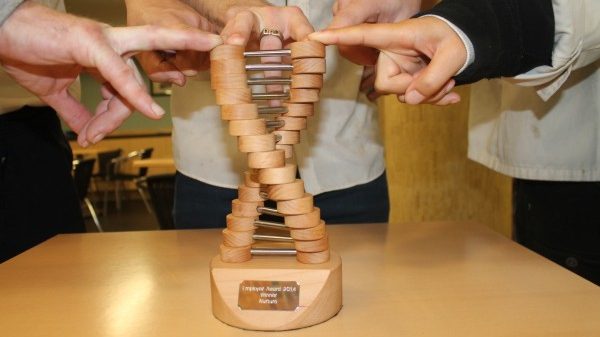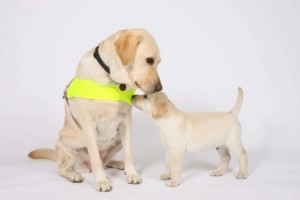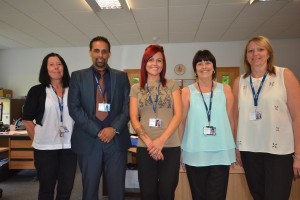Professor Peter Lodge is an internationally renowned hepatobiliary surgeon and has extensive experience in performing liver surgery.
He is one of the most experienced surgeons in the UK for complex liver surgery and also trains others for most of the major liver units located in the UK and abroad. Patients from across the UK and overseas are regularly referred to Professor Peter Lodge as he has taken on cases of complex liver surgery considered to be inoperable elsewhere. For the last 5 years Professor Lodge has also specialised in laparoscopic weight loss surgery, giving people who need the surgery a less invasive and more rapid recovery option, to enable them to lead a happier, healthier future.
[private]The Yorkshire Reporter asked Prof Lodge to tell us about his journey in medicine, collecting many highly acclaimed awards along the way and how he became one of the UK’s leading specialist surgeons developing new techniques that are now saving thousands of lives. This is what he had to say:
“From the age of about 12 I knew I wanted to be a doctor. At that time I was living in Vancouver, Canada, as my parents had emigrated there to pursue their careers in dentistry when I was 8. I was not progressing at school there so I asked to come back to England to go to boarding school to see if I could make it into medical school. In the process I passed a scholarship exam at Durham School and skipped a year so I did A-levels at 17. Leeds was one of the very few medical schools that would take students at 17 so I applied and got in. Medical school was tough and I struggled initially. In third year at medical school we had a lecture from Mr Ralph Kester, a vascular surgeon. It was like a light going on – I had to do surgery. The same year I spent 8 weeks doing surgery at St James’s with Professor Geoff Giles and I decided I would work very hard to get my house job (intern year) with him and I did the same with Professor Monty Losowsky, who was Professor of Medicine and I was successful with both. Little was known about liver diseases but both Profs were experts in the field and they inspired me to pursue liver surgery and also transplantation. These were days of long hours, hard work and often poor results so I was lucky that several of my colleagues decided to go in other directions freeing up the right jobs for me. It seemed to me that I had found something that I may be able to improve. I stayed in Yorkshire for my surgical training, and combined a two year research job with a clinical job, doing my research from 5AM until 8AM and then again after work until late at night to get ahead with my career more quickly. At that time, Prof Giles had developed a strong kidney transplant programme with Prof Sandy Davison and the beginnings of a liver transplant programme with Prof Losowsky. It seemed natural to add on pancreas transplantation so I went to Harvard to learn about it. Sadly, while I was there in 1992, Prof Giles died suddenly and I came back to continue building the programme.
“In pursuing transplantation, I carried out 900 renal transplants and 850 liver transplants, as well as a smaller number of pancreas, small bowel and multivisceral grafts, and supervised many more. After a few years it became clear that pancreas transplantation should be concentrated in a few centres and we decided to support Manchester to do this whilst we concentrated on developing liver surgery in Leeds. This was the right decision as liver surgery has expanded rapidly and last year there were 140 liver transplants and about 300 liver resections in Leeds. One recent development that I helped to start 8 years ago is our live donor liver transplant programme, with 50 transplants carried out to date.
“For liver cancer surgery, our programme has grown from 6 liver resections and 2 bile duct cases in 1992 to 300 resections and 40 bile duct surgeries each year by 2006 and since then there has been continued gradual growth. I have carried out more than 1800 liver resections and supervised many more. One aspect I was keen to develop was to create a major hepatobiliary service, taking referrals from all around the U.K. and from abroad, including other major hepatobiliary centres. I set out to provide a service for difficult liver tumours, often taking on cases considered to be inoperable elsewhere, and I also dealt with complex biliary strictures and injuries to the liver and bile ducts. Along the way, I appointed several very good colleagues to help develop the service further. My main interests have related to the development of innovative surgical strategies for patients with complex problems, for example, multi-stage surgery for patients with classically inoperable cancers and auxiliary liver transplantation for patients with acute liver failure.”
One patient who Professor Lodge has helped is Dorothy Horsman;
When Dorothy heard those three dreaded words “You have cancer” her world turned upside down.
Dorothy, a former mental healthcare manager and married mother of two from Bradford was then told by doctors she had cancer of the bile duct, which had spread to her liver. Her doctor told her she had only about two months to live and they could do nothing further for her other than manage the pain. She returned home distraught. “My first thought was I might not live to see my daughter Ellen’s wedding,” said Dorothy, who was 55 at the time of diagnosis with two daughters aged 18 and 22.
The day after her devastating diagnosis her doctor called her to say he knew of a specialist hepatobiliary consultant called Professor Peter Lodge at Spire Leeds Hospital who might be able to help her. The family has a strong faith and as soon as they met Professor Lodge they felt their prayers had been answered. Dorothy had surgery a few days after Christmas 2005.
That was nine years ago. Today, her annual scan shows she is clear of cancer, and not only did she live to see her daughter Ellen get married. She also saw the birth of her grandson, Gabriel, now four years old.
Dorothy’s story began in 2000 when she was diagnosed with fibromyalgia and would wake up at night with pain in her legs. She then found a tiny painful gland-like swelling in her foot; a sign of the cancer. When her doctor referred her to Professor Lodge, Dorothy immediately made an appointment and went to see him at Spire Leeds Hospital taking her sister and husband along for support. “Professor Lodge told me I had had cancer for a long time. With hindsight that made sense as I felt tired all the time. I used to fall asleep in meetings,” she said.
It was a rare form of cancer – a tumour called a neuroendocrine carcinoma. Professor Lodge discussed the risks with Dorothy.
Her family waited outside surgery, which took around eight hours. Her husband of 39 years, Ronnie, said. “It sounds strange but the longer she was in surgery the more hope it gave us, because we knew if she had only been a short time it would mean they had found the cancer to be inoperable.”
The surgery was successful. She stayed in Spire Leeds Hospital for almost three months and made a steady recovery. The cancer had been completely removed so there was no need for chemotherapy or radiography.
Once fully recovered, Dorothy felt well and life returned to normal. She has annual CT scans. When she reaches her ten-year anniversary she will have another full body scan and, assuming everything is still clear, she will be discharged. “Professor Lodge saved my life and I cannot praise him highly enough. I feel so lucky as I might not have lived to see my grandson. He brings a smile to my face every day!”
Speaking about Dorothy, Professor Lodge tells us:
“Dorothy came to see me with what seemed to be an inoperable liver tumour. At the time, we weren’t sure what type of cancer it was. She was very ill but very determined and that always helps. Her husband Ronnie, who was working for Morrisons, was a huge support. I felt we could remove the tumour by surgery but I had to tell Dorothy that it was going to be very risky. The operation was designed to remove about 80% of her liver and my plan was to extend the resection across boundaries that we hadn’t crossed before. The surgery went well so we have done similar surgeries since then. This is how liver surgery advances. People sometimes say that I am brave to push the boundaries but it is the patients like Dorothy who are the brave ones! She and Ronnie are a wonderful couple and I have been so pleased to help them to have more time together.”
“The success of liver surgery in Leeds means that we take regular international fellows in surgery on institutional and national scholarships, who come to Leeds to learn about new techniques. These have been primarily from the USA (Mayo Clinic, Cleveland Clinic, Detroit Hospitals) and Japan (Nagoya, Tokyo, Kyoto, Sapporo) but I am also involved in collaborative international training programmes for trainees from less advantaged countries.
“Cancer treatment is developing rapidly. Each year we get new chemotherapy drugs to help us and each year we work hard to try to improve the surgery that we are doing. This year we will be aiming for one in five of our patients to be treated by minimally invasive surgery by doing the surgery laparoscopically. This is important as it means that recovery times are much shorter, patients get back to normal faster and if needed, extra treatments can be given earlier. We are also continuing to move in the other direction for extensive tumours that need open surgery. We are doing more extensive operations and we are now doing multi-stage surgery where we combine a number of smaller liver operations rather than trying to do everything in one go if that will be safer. These developments, in combination with new drug therapies given before or after the surgery, are helping us to improve results. Unfortunately, not everyone is able to have a liver operation and not everyone who has one does well but year on year our results are improving.”
“About 5 years ago, I decided to change direction and to do less in the transplant programme as we had some new surgeons who wanted the opportunity to do more. Liver surgery was changing and we were starting to do more minimally invasive work by carrying out laparoscopic liver surgery whenever possible. I decided I needed to improve my laparoscopic skills and at the same time I felt it was the right stage in my career to develop another focus. I therefore spent time abroad, primarily in Copenhagen, exploring new avenues in advanced laparoscopic surgery, including a new approach to laparoscopic Roux-en-Y gastric bypass for obesity, using hand sewn anastomoses and an enhanced recovery program. This has enabled me to improve my liver surgery and also to help people with weight disorders. Recently, I went back to Denmark to learn some further improvements and more techniques related to weight loss surgery. This is an exciting and challenging area, and one we will need more of in the UK”.
Kevin and Catherine Falconer, a married couple from Leeds, both professional drivers, have succeeded in losing a total of
20½ stone between them after having gastric bypass surgery at Spire Leeds Hospital, performed by Professor Lodge.
The success of Kevin’s procedure in April 2013 spurred Catherine to have the same surgery last October. “It’s been a good experience being able to support each other throughout the process,” said Catherine. “Seeing Kevin’s success gave me the confidence to have the surgery as I was quite frightened.”
Kevin, 60, is 5ft 3 and weighed 25 stone. He is now about 12 stone having lost more than 60 percent of his body mass. Catherine, 59, needed a gynaecological operation but was unable to have it due to her size. She was 19 ½ stone and now also weighs about 12 stone.
“We both feel we have been given a new lease of life and a longer life span,” said Kevin.
Both had long-term weight problems and had tried to lose weight by trying a variety of diets, exercise (until this became unfeasible), and weight loss medications. Kevin is a HGV lorry driver and cannot divert from his route so his diet consisted mainly of ‘layby food’ and huge fried breakfasts. The weight piled on over the years. “When you are as fat as I was you give up all hope,” he said.
Catherine, a taxi driver, had struggled with her weight since a teenager and suffers from other health problems including osteoarthritis, which made it difficult for her to exercise. She has to grab food while driving and would share takeaways and cakes with other drivers. Both Kevin and Catherine, who live in the Belle Isle area of Leeds, were supported with nutritional advice at Spire and now eat smaller portions of healthier food, which they cook and take to work. “I don’t miss the fatty fried foods at all,” said Kevin.
Catherine said the final straw for her was during a trip to Bridlington with one of her eight grandchildren. “I could not walk even a short distance without getting breathless and having to sit down and I could not make it down the steps to the beach. I came home and started crying. We decided it was time to do something about it,” she said.
Their GP referred them to Professor Peter Lodge who said, “Kevin and Catherine were in serious trouble when they first came to see me. At 25 stone and a BMI of 53 Kevin was classified as super-obese and as a result would have a predicted life expectancy of 20 years less than average. Catherine’s BMI was 43 (normal is 18 to 25) and being overweight had seriously affected her joints and breathing. She could only walk a few yards without having to stop to catch her breath, and she would often wake up during the night breathless – a dangerous condition known as sleep apnoea.”
He performed Laparoscopic Roux-en-Y gastric bypass surgery. Kevin and Catherine were in hospital for only one night and were up and about within hours of the surgery. Professor Lodge said, “This is one of the most effective forms of weight loss surgery with the least in the way of side effects compared to other alternatives. The major advance of being able to do the procedure laparoscopically (key hole surgery) is the quicker recovery time. Also, they were able to eat normally by 10 days from surgery, compared to other techniques where the diet is very restrictive for several months.”
Professor Lodge said the benefits are not just weight reduction but may also include: decreased joint pain, less breathing difficulties, ability to sleep right through the night, increased energy and the ability to return to exercise, and enjoy participating in activities with family and friends again.
Kevin said, “Professor Lodge and the team at Spire were fantastic. They are so supportive. It’s not a quick fix. It takes a change of lifestyle. I took the advice on board and stuck to it. Every so often the success gives me an adrenaline rush. It has changed my whole outlook on life.”
Catherine said, “Professor Lodge is my hero! A fellow taxi driver has also had the procedure so he has three very satisfied customers. This year I plan to be running around with my grandkids. I have so much to look forward to I can’t stop smiling!”
Hopefully, with surgeons and doctors such as Professor Lodge, advances in medicine will continue, enabling people to overcome illness and disease with increasing success. We are sure that with the dedication to their patients and research that medical professionals show this will be the case. [/private]
